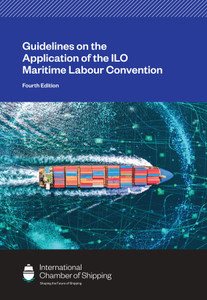
This consolidated edition of the FAL Convention includes the 2022 amendments (resolution FAL.14(46)) adopted at the forty-sixth session of the FAL Committee.
These amendments, which enter into force on 1 January 2024, address single window systems, electronic transmission of data, lessons learned from the COVID-19 pandemic and the efforts to counteract the effects of corruption.
The publication also includes the 2023 amendments (resolution FAL.15(47)) that are expected to enter into force on 1 January 2025. These amendments affect Recommended Practice 7.11, and aim to address the need to combat illicit activities in the national facilitation programmes of Governments.
Foreword
The Convention on the Facilitation of Maritime Traffic (FAL Convention) was adopted by the International Conference on Facilitation of Maritime Travel and Transport on 9 April 1965. It entered into force on 5 March 1967.
The purpose of this Convention is to facilitate maritime transport by simplifying and minimizing the formalities, documentary requirements and procedures associated with the arrival, stay and departure of ships engaged on international voyages. It was originally developed to meet growing international concern about excessive documents required for merchant shipping. Traditionally, large numbers of documents are required by customs, immigration, health and other public authorities pertaining to the ship, its crew and passengers, baggage, cargo and mail. Unnecessary paperwork is a problem in most industries, but the potential for red tape is probably greater in shipping than in other industries, because of its international nature and the traditional acceptance of formalities and procedures.
The Convention emphasizes the importance of facilitating maritime traffic and demonstrates why authorities and operators concerned with documents should adopt the standardized documentation system developed by IMO and recommended by its Assembly for world-wide use. Contracting Parties to the Convention undertake to bring about uniformity and simplicity in the facilitation of international maritime traffic.
The Annex to the Convention contains rules for simplifying formalities, documentary requirements and procedures on the arrival and departure of ships and, in particular, it reduces to twelve the number of documents which can be required by public authorities. These are the General Declaration, Cargo Declaration, Ship?s Stores Declaration, Crew?s Effects Declaration, Crew List, Passenger List, Dangerous Goods Manifest, Security-related information as required under SOLAS regulation XI-2/9.2.2, Advance electronic cargo information for customs risk assessment purposes, and Advanced Notification Form for Waste Delivery to Port Reception Facilities (when communicated to the Organization) as well as two documents required under the Universal Postal Convention and the International Health Regulations. IMO has developed standardized forms for the first seven of these.
As a further aid to compliance, the Annex to this Convention contains ?Standards? and ?Recommended Practices? on formalities, documentary requirements and procedures which should be applied on arrival, during their stay, and on departure to the ships, their crews, passengers, baggage and cargo.
Foreword
Articles of the Convention on Facilitation of International Maritime Traffic
Annex
Section 1 ? Definitions and general provisions
Section 2 ? Arrival, stay and departure of the ship
Section 3 ? Arrival and departure of persons
Section 4 ? Stowaways
Section 5 ? Arrival, stay and departure of cargo and other articles
Section 6 ? Public health and quarantine, including sanitary measures for animals and plants
Section 7 ? Miscellaneous provisions
Additional information on facilitation requirements
Appendix 1 ? IMO FAL Forms
Appendix 2 ? Arrival and departure of persons
Appendix 3 ? Form of stowaway details referred to in Recommended Practice 4.6.2
Appendix 4 ? IM DG Code, amendment 38-16, chapter 5.4 on Documentation
IMO
As a specialised agency of the United Nations, the International Maritime Organization (IMO) is the global standard-setting authority for the safety, security and environmental performance of international shipping. Its main role is to create a regulatory framework for the shipping industry that is fair and effective, universally adopted and universally implemented.
In other words, its role is to create a level playing field so that ship operators cannot address their financial issues by simply cutting corners and compromising on safety, security and environmental performance. This approach also encourages innovation and efficiency.
Shipping is a truly international industry, and it can only operate effectively if the regulations and standards are themselves agreed, adopted and implemented on an international basis. And IMO is the forum at which this process takes place.
- Number of Pages:
- 0
- Published Date:
- December 2023
- Book Height:
- 0 mm
- Book Width:
- 0 mm
- Publication Date:
- December 2023
- Author:
IMO
- Preview:
- Yes






